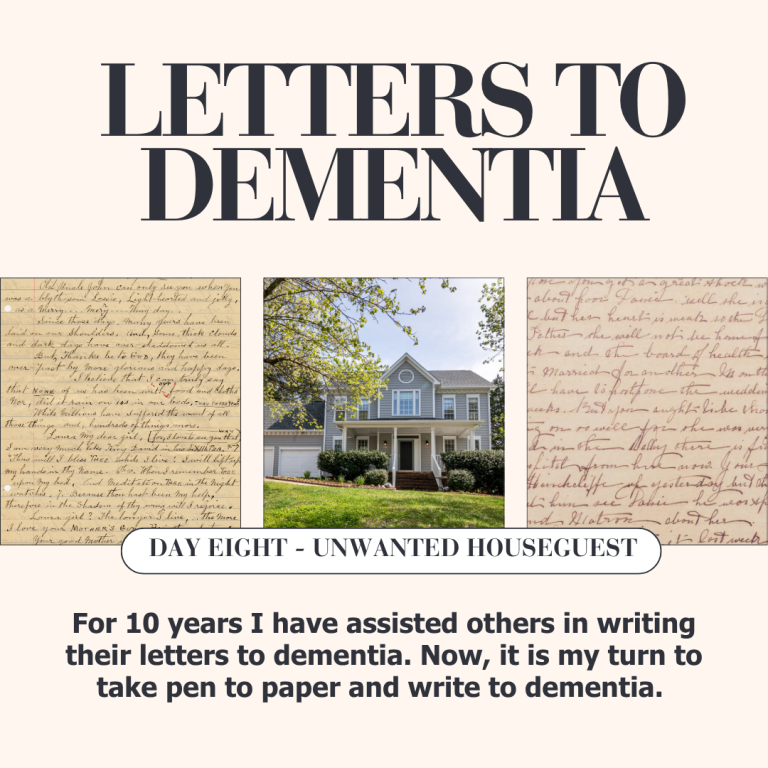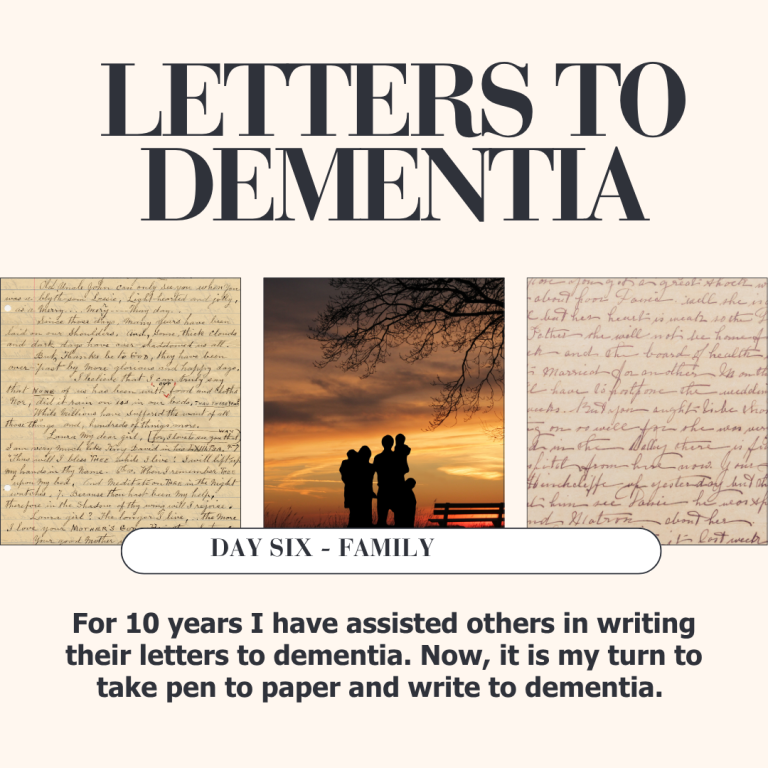July 2, 2025
Dear Dementia,
I didn’t want to write to you today. I have had too much going on with work, with life, with the thoughts spinning through my mind, but here I am at 10:18 at night and forcing myself to write to you.
One thing that baffles me about you is your ability to cause people to treat every moment like a pep rally. Why do we feel we need to yell, and be boisterous, and bring out the band when we work with you? You after all are not the person. What does the person want? Why must we think you are the dominant personality the second you enter the room and assume how we must engage with you? Activities staff are the WORST at this! Speaking as a former activities staff member myself, I hated that part of the job. The part where we would be told to start dancing around and grabbing resident’s hands when the music started to play.
Music and movement is great, but it felt demeaning and too much of an assumption about the person before us to start grabbing someone’s hands and force them to dance. What is wrong with simply tapping our toes together with the music as we sit side by side? What is wrong with humming or singing along as we wiggle in small movements? There is more than one way to engage with music and movement.
There is play and then there is preschool. Do we know where that line is drawn? When we chose to engage with you do we bother to ask the person before us what they like and what invites them into play? For some that costume and parade is exactly what the spirit and doctor ordered. For others it becomes not an invitation but an iron door slamming shut to possibility, play, imagination.
This is where Anne Basting has modeled for us that blend of playfulness and dignity so beautifully. What she showed us is possible through the TimeSlips method is that sweet spot that can lead us into play and then open the door to those quiet moments of sitting next to each other, wiggling our fingers and toes to our favorite music, or dancing with the staff member dressed as Santa.
Where else can we find examples of better ways to play with you? They are out there. They are also inside of us. We as individuals accompanying you, fighting with you, playing with you must remember the person, and remember that we are a person as well. We have likes and dislikes, a specific personality and way of being. We can bring that to care. If we are quiet we don’t need to force ourselves to be loud. If we are colorful, we don’t need to force ourselves into black and white.
Dementia, I wish I could tell the world that there is another way to engaging with those living with you in their brain, and know they hear me. I am afraid too many are hiding behind fear, regulations, and the comfort the known.
Until tomorrow,
Kate



